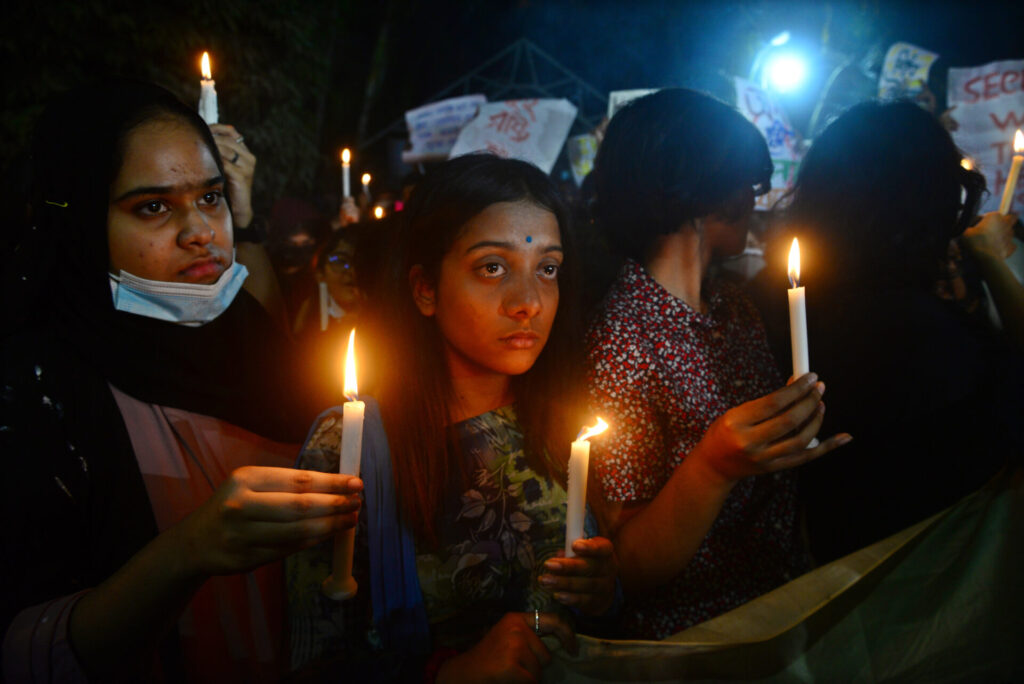Although laws have been implemented to guarantee equal rights for both men and women, women and girls in Bangladesh are still victims of various forms of discrimination, both socially and politically. In Bangladesh, child marriage plagues the nation, and women are given a male guardian who takes ownership of finances and land.
Despite child marriage being illegal, Bangladesh has the largest number of child brides in South Asia and the seventh highest in the world. According to the non-governmental organisation Girls Not Brides, 51% of girls, equal to 38 million, are married before turning 18, and a staggering 16% of girls, equal to 13 million, marry before age 15. Amid rising climate crises, an increasing number of families have also taken to child marriage in order to make ends meet.
“Child marriage has broken all my life dreams,” Razia Akhtar, who was forced into marriage at just 14 years old, said in an interview published by Inkstick. “I went from the reading table to the kitchen. Instead of books, I now have cooking utensils.”

In 2020, as weather extremes and the COVID-19 pandemic pushed her family further into poverty, Razia’s parents revealed their plans to have their daughter married. Describing her reaction to the news, Razia said: “At that moment, I could not believe my ears. My hands and feet were shaking.”
Bangladesh ranks 59th in the world’s Gender Gap Index. Despite many women refusing to report physical, sexual and psychological abuse, out of fear and concerns surrounding family reputation, research published by UN Women shows that Bangladesh has the highest rates of violence against women in South Asia. More than half of Bangladesh’s women have experienced some form of gender-based violence. Findings also exposed that a staggering 82% of married women in Bangladesh are victim to gender-based and sexual violence.
While the government continues to work towards achieving gender equality by 2030, progress seems to be impossible. Between the years 2015 and 2024, Bangladesh’s violence against women increased from 72.6% to 89%, according to a report published by Dhaka Tribune.
This year, Bangladesh’s interim government released proposals to better the rights for women in the country. The proposals included inheritance rights for women, a ban on polygamy and recognition of sex workers as labourers.
In May of this year, around 20,000 supporters of the Islamist group Hefazat-e-Islam rallied in the nation’s capital, Dhaka, to protest the proposal. The group held banners and placards that read: “Say no to Western laws on our women, rise up, Bangladesh.”
The Islamist group criticised the government’s proposal, claiming the reform aimed at ensuring equal rights for women contradicts Sharia law and declared “men and women can never be equal”. A leader of the group, Mamunul Hague, demanded that the interim government abolish its reforms for women and asked for its members to be punished for suggesting such an atrocity.
Bangladesh Mahila Perishad is one of the leading women’s rights organisations in Bangladesh. Maleka Banu, the General Secretary of the group, has played a key role in advocating for women’s rights and gender equality across the country, addressing the various forms of discrimination against women and girls.
“In Bangladesh, there has been significant progress, especially in education, where gender disparities have reduced, and women’s participation in the workforce has increased. Laws protecting women’s rights, such as those addressing violence against women, have been enacted,” Banu said. “However, challenges like gender-based violence, patriarchal norms, and lack of access to resources for rural women persist.”

“Bangladesh needs to prioritise several concrete steps to achieve gender equality by 2030”, the leader added, calling for urgent attention on gender-based violence, economic empowerment, education and marginalised communities.
“Education is foundational to gender equality. Bangladesh must invest in girls’ education, especially in rural areas, by addressing barriers like early marriage and poverty,” Banu declared, adding that “addressing barriers to enrolment and retention will help break cycles of poverty.”
Banu also listed political participation and healthcare as areas needing urgent attention. Women are still seeking improved access to healthcare services, particularly maternal and reproductive health, and remain underrepresented in leadership positions.
The gender gap in Bangladesh’s labour market participation has also been impacted by child marriage. While the gap has closed slightly in the past five years, according to the latest Labour Force Survey, the current participation rate stands at 43% for women compared to 81% for men.
For more than a decade, Bangladesh’s government has implemented a range of policies and laws that set out to promote gender equality. Such laws include the Bangladesh Women and Children Repression Prevention Act, first approved in 1995, which sets out to tackle acts of violence against women and children.
While laws against gender-based violence exist, Banu criticised the current judicial systems for being “inconsistent”. “Strengthening law enforcement, judicial systems, and social services, alongside providing support services such as legal aid, safe housing, and counselling for survivors, is crucial,” she added.
“One of the biggest obstacles has been entrenched societal norms that perpetuate gender inequality, alongside resistance from conservative power structures. Overcoming these challenges required building coalitions, mobilising grassroots support and leveraging international advocacy networks.”
To achieve gender equality by 2030, Banu called on Bangladesh’s government to prioritise “listening to and amplifying the voices of marginalised women”. It is inherent that the country continues to “challenge harmful gender stereotypes and promote equality in both words and actions”, she added.
As the Beijing+30 Global Review approaches, a conference that unites governments and society in the fight to end gender inequality, the United Nations Development Programme (UNDP) has agreed to assist the Bangladesh authorities with achieving gender equality. Together with the UNDP, the nation has vowed to “recognise men and boys as allies in closing the gender gap and address discriminatory attitudes, practices and oppressive forms of masculinity that impact both women and men”
“For the Beijing+30 conference, I hope to see a renewed global commitment to gender equality,” Banu said.













